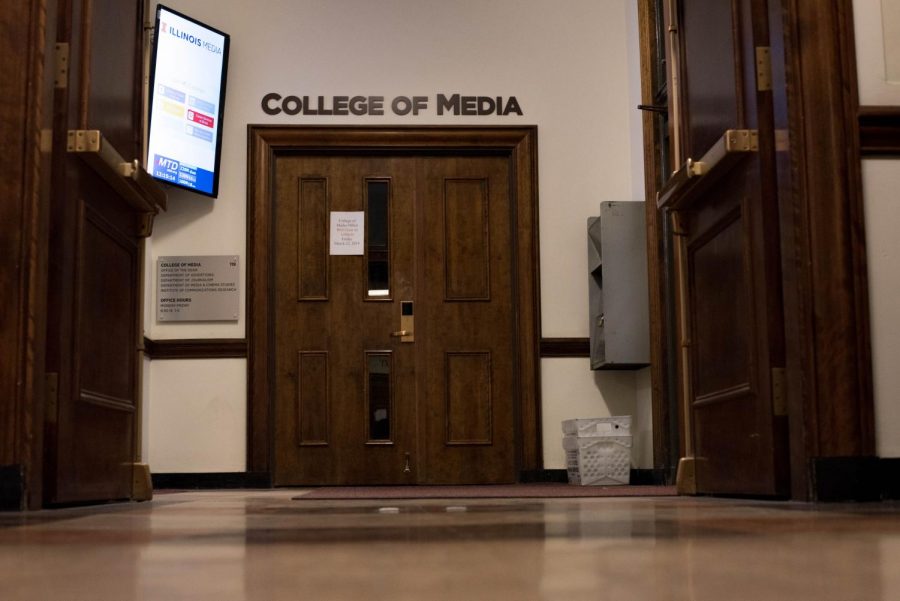Advertising restructures program
the daily illini The College of Media stands as home to the Department of Advertising. The department’s decision to abstain from accreditation has led to discussion of major changes in the program, such as a possible increase in credit hours currently required to graduate with a degree in advertising.
Mar 25, 2019
As the end of the spring semester approaches, so does the challenge of planning the following year’s coursework. However, the Department of Advertising’s decision to forgo accreditation may offer students a variety of new courses designed to follow industry trends.
Accreditation is the process through which an external body, based on departments, conducts evaluations every five to six years and ensures industry standards are being upheld, according to the Department of Education’s website.
In 2018, the University’s advertising faculty decided to no longer follow the accreditation process from the Accrediting Council on Education in Journalism and Mass Communications. The implementation will be effective this upcoming fall.
During this process, the National Accreditation Council considers multiple aspects, such as requirements of admitted students, reputations and teaching abilities of faculty, services available to students and overall quality of education.
Despite the department’s decision to steer away from the external evaluation method, the confidence to uphold industry standards still exists.
Get The Daily Illini in your inbox!
Jason Chambers, associate professor in Media and director of undergraduate studies of advertising, said the department has always been maintaining standards internally and will continue to incorporate parts of the accreditation standards that are applicable to the department.
“The second (evaluation method) is peer observations of other institutions and making sure the advertising program standards meet and exceed competing programs as well as our own,” Chambers said. “The outcome of all these areas is an exceptionally proactive department.”
The main reason for preceding accreditation was because it limited the creation and flexibility of courses. The council, for example, would decide the number of hours an advertising student should complete.
“It limits the creation of courses because an accreditation body is external to the department and it establishes its own standard of what an advertising program should be like,” Chambers said.
The advertising industry is always changing to meet the needs and preferences of a modern consumer. Therefore, responding to industry trends within offered courses is imperative to the advertising department.
Chambers said the industry is heading toward analytics, data and programmatic advertising. To keep up with these trends, the advertising department is looking to offering new courses and track initiatives like the CS + advertising degree.
The CS + advertising degree combines computer science with new advertising courses designed to fit the growing digital advertising industry.
This new academic path and creation of programmatic advertising courses have resonated well with students in the advertising department.
Jenna Hilgers, sophomore in Media, said computer science courses are helpful, considering the huge trend shift toward digital marketing.
“Everyone lives their lives through their phones and computers, so it is important for companies to target their consumers through these outlets,” Hilgers said.
With the recently gained flexibility, the advertising department has taken its first steps. Design and implement programs are creating new courses, hiring new faculty, reworking the curriculum and deciding on whether to increase the number of credit hours a student spends in the department.
The end goal of the department’s increased autonomy is to give advertising students more understanding of the public sphere and to provide students with a broader scope of possible employment opportunities, Chambers said.
Hilgers believes forgoing the formal accreditation process will be beneficial for students, providing them a better understanding of the current industry and knowledge applicable to their post-graduate jobs.
“I want to communicate that these (initiatives) are all (student-focused) and are aimed at making the University’s advertising graduates outstanding among their peers,” Chambers said.






